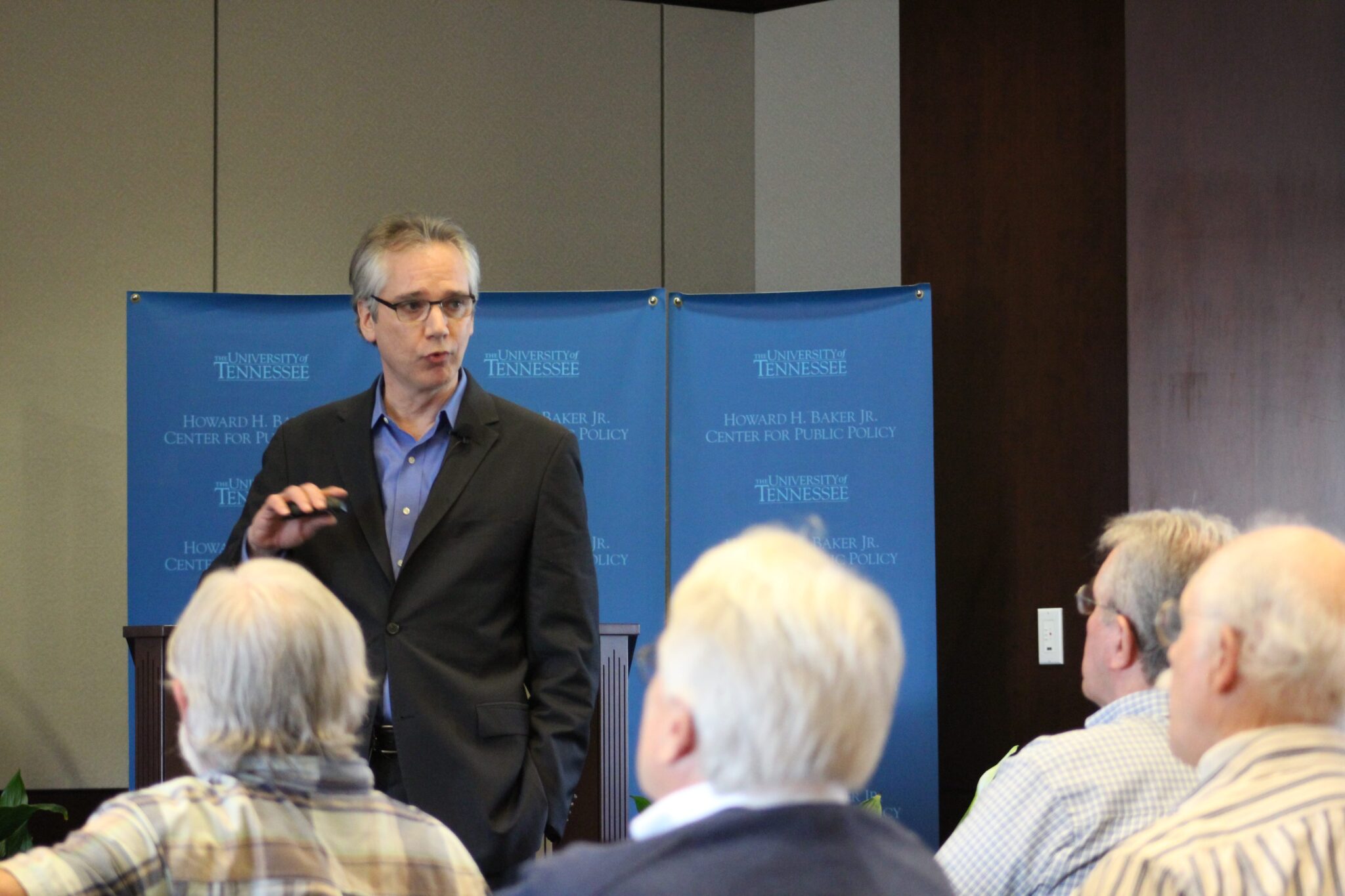Hot topic at Baker Center: Trump’s effect on climate change policy
Dr. Andrew Light discusses possible stances the U.S. could take on the Paris Agreement in the face of Trump’s tepid take on global warming.

Dr. Andrew Light highlighted the looming situations the U.S. could face if Trump pulls out of the Paris Agreement at the Howard Baker Center on Friday, Feb. 24.
Dr. Andrew Light discussed the arduous road to climate change agreements and the anxiety regarding the future of the Paris Agreement under the Trump Administration.
On Friday, Feb. 24, and uncharacteristically-hot 79-degree day in late February, Light answered the burning questions regarding the fate of the Paris Agreement if Trump rejects it.
According to his best estimates, there are five alternative scenarios to the United States’ participation in the Paris Agreement. They range from formal withdraw to a symbolic rejection, both of which would undermine the strength of the agreement.
“The Paris Agreement is only as good as its policies,” Light said. “The U.S. pulling out of the agreement will threaten the integrity of the regime.”
All 197 countries in the international community finalized the Paris Agreement on Oct. 5, 2016 aiming to strengthen the global response to climate change. The good-will signified by embarking on the journey has since been spoiled by the election of a president who rejects the notion of climate change. There is worldwide tension with all eyes turned to Trump himself.
As a professor at George Mason University and a Senior Adviser on Climate Change at the U.S. Department of State, Light has seen his fair share of climate discussions. He predicts that Trump’s options are to formally withdraw, withdraw from the UN Framework Convention on Climate Change (the governing body of the agreement), send it back to the U.S. senate where it would almost certainly fail, announce that the U.S. is not governed by the agreement or to stay in the agreement but revise the specific emission targets.
China and India, other international-heavyweights in pollution, have each remained steady in their vow to honor the agreement. Light believes that a collective international pressure will be the only convincing factor to keep the U.S. in the agreement.
“To keep us in, we have to have an external pressure,” said Light. “This involves the theory in how we created the agreements…you’re going to have to pay some kind of price, at least reputationally, if you pull out.”
The global temperature has warmed one degree Celsius, causing sea level rises, elevated average temperatures and changing weather patterns.
One audience member who declined to share her name cited her strong support for the March for Science and Earth Day to get the attention of those in government while simultaneously questioning the best method to address those who in disbelief of climate change.
“How do we get the attention of those who are going to destroy the planet?” she said.
“We’re talking about cutting-edge nineteenth century science,” said Light, earning a laugh from the audience. “They [scientists] should not hesitate because what they say is perceived as political speech. What they’re doing is in the interest of public safety. Scientists have the responsibility to protect us.”
If the global temperature warms to two degrees, Light insists that the world is in danger of losing massive land masses and territories. Thought the U.S. will survive relatively easily, he says, not every country will be that lucky. The U.S. would be able to adapt because of modified crops and infrastructure like high sea walls.
“It’s not just one factory that is polluting or one sector of the economy that’s polluting, it’s a byproduct of everything that we’re doing—everything that is driving modern society,” Light said.
Nick Baker, junior journalism major at UT, has dedicated many years to his passion for agriculture. He foresees serious changes ahead for the industry.
“I could see there being some legislation put into place that requires equipment companies to turn to more sustainable energy sources which, in turn, would likely shift the prices of the machinery as well as the oil which would obviously effect the cost of the product [agricultural] being produced,” he said.
“He gave a pretty detailed history of legislation…,” Baker said. “Ultimately, global warming is everyone’s responsibility.”
Light concluded the talk calling the March for Science on April 22 a positive movement to make noise about the issue.
Knoxville citizens are planning their own march for science here.
Edited by Kaitlin Flippo
Featured image by McKenzie Manning

